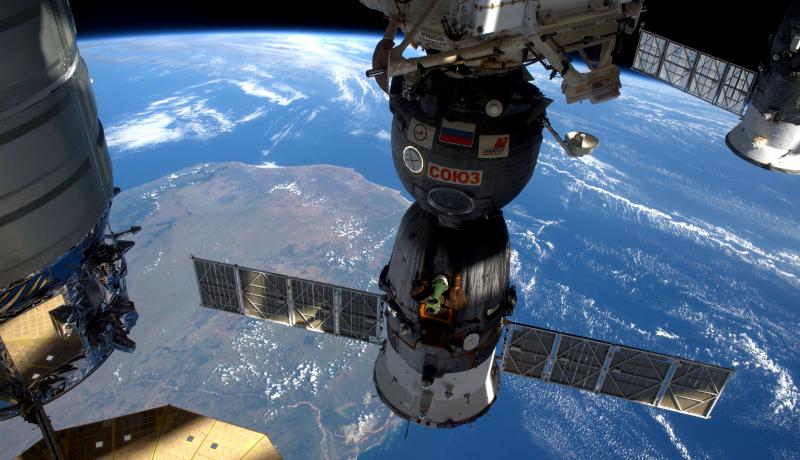For the past two years, Zoltan Istvan has been campaigning for the US presidency on the Transhumanist Party, a largely one-man show which nevertheless remains faithful to the basic tenets of transhumanism. Now suppose he won. Top of his policy agenda had been to ensure the immortality of all Americans. But even Zoltan realized that this would entail quite big changes in how the state and society function. So, shortly after being elected president, he decides to hold a national referendum on the matter.
The question on the ballot is one that makes the stakes crystal clear: ‘The government shall endeavour to release all Americans from the constraints of mortality’. Zoltan liked this way of putting things because were he to lose to the referendum, which he half-presumed, the opportunity to air publicly the relevant issues would continue to shift naysayers in Congress to increase funding for broadly anti-death research and treatments — a step in the right direction, as far as he’s concerned.
Zoltan also liked the idea that the referendum effectively ‘rotated the political axis’, from left-right to up-down, a turn of phrase he picked up from some philosopher whose name he couldn’t remember. But this also meant that the ensuing campaign, which was fierce, attracted a motley crew of supporters on both sides.
The ‘Remainers’ (as the anti-immortalists call themselves) were composed of a mix of traditional religious believers, environmental activists and hard-headed sceptics who distrust all transcendental hype, whether it comes from religion or science. In other words, those who wanted us to remain in our normal bodies held that our fate either is confined to our current circumstances or requires that we remain in those circumstances in order for something better to happen post mortem. The stakes were so high that even the Pope was called out to argue the case, which of course he was more than happy to do, Obama-style.
On the other hand, the ‘Leavers’ who espouse immortality were an even more mixed bag. Some on the ‘soft’ side of the argument wanted us to remain in our biological bodies, but in a fortified form that makes us forever resistant to foreign agents. Thus, the prospect of reversing the ageing process got sold as an indefinite productivity booster, allowing us to do what we already do but without the constraints imposed by age and death. In contrast, the ‘hard’ side wanted us to leave our biological bodies altogether and enter into the relatively unregulated realm of ‘digital immortality’, which was sold as enabling us to interact with a broader range of agents than we could otherwise do, both on Earth and maybe even in the cosmos. Indeed, various interfaces were being developed that would enable us to exchange data easily with all sorts of non-human beings to mutual benefit. And matters could go much further – even towards a ‘Singularity’, a universal free trade data zone! However, none of this could be brought to fruition unless we first release ourselves from various codes and norms that inhibit their development and use.
It turns out that the Leavers managed to suppress their differences during the campaign and surprisingly eked out a narrow win. But what was President Zoltan to do? Understandably he wanted to keep his options open with regard to how immortality is implemented. So the first thing he did was to appoint a cabinet with a broad church of Leavers on board, and so both Aubrey de Grey and Ray Kurzweil figured prominently. But these guys pulled the implementation of Leave in opposing directions. De Grey wanted to focus on a radical extension of conventional medical research. Indeed, when de Grey first heard that President Zoltan was holding a referendum, he was concerned that ‘immortality’ might mean only the digital immortality favoured by Kurzweil, which de Grey regards as a complete fantasy.
By the time the referendum campaign began, Zoltan had managed to get Congressional approval to increase funding and loosen regulation in ways that enabled various pro-immortality research projects to move forward at an unprecedented pace. However, as the campaign progressed, it became clear that the soft immortalist side was lagging: There appeared to be much greater cellular complexity to the reversal of ageing than de Grey and his colleagues had imagined.
Meanwhile a clever tech entrepreneur, inspired by the economist Robin Hanson, had figured out a way to scan living brains for purposes of uploading them into machines capable of enhancing their computational power indefinitely. These brain emulations (or ‘ems’) are indeed at least in principle immortal, but at the cost of leaving the original human in a state of disorganized mush, which is to say, biologically ‘dead’. Because Zoltan had already de-regulated all transhumanist-related industries, the ‘ems’ end up dominating the market, with large public relations firms emerging to persuade people that they will live better lives by abandoning their biological bodies and uploading into what some liken to Star Trek’s Borg.
After a few generations, Earth had earned a reputation as the most rational death cult in the cosmos.
And they all ‘lived’ happily ever after…








